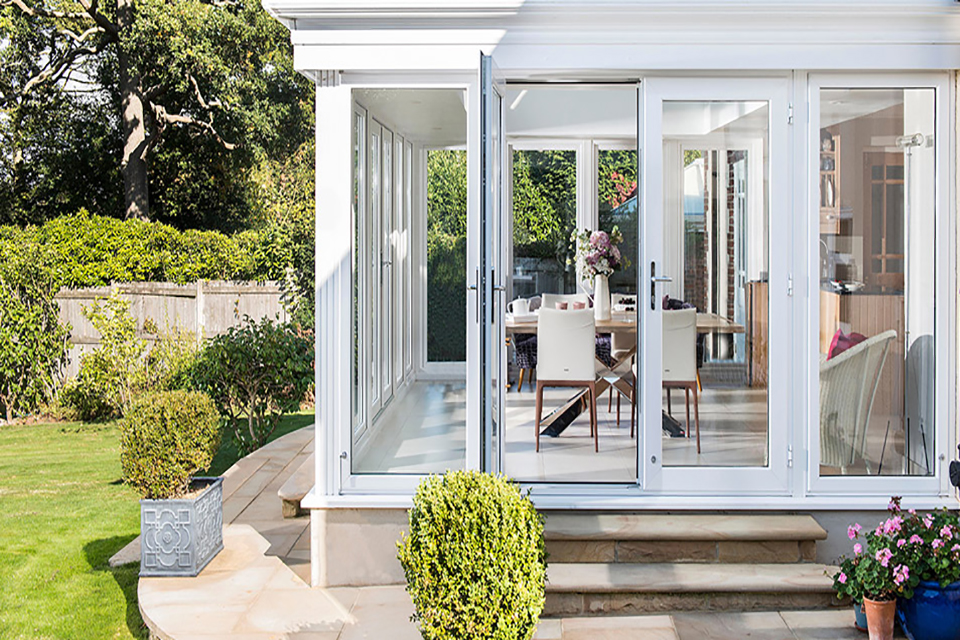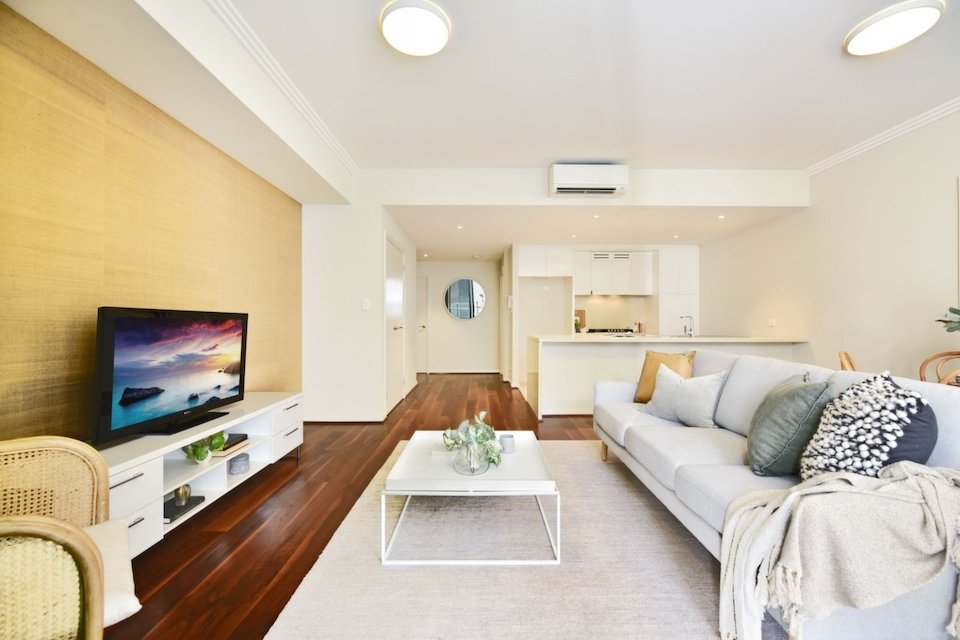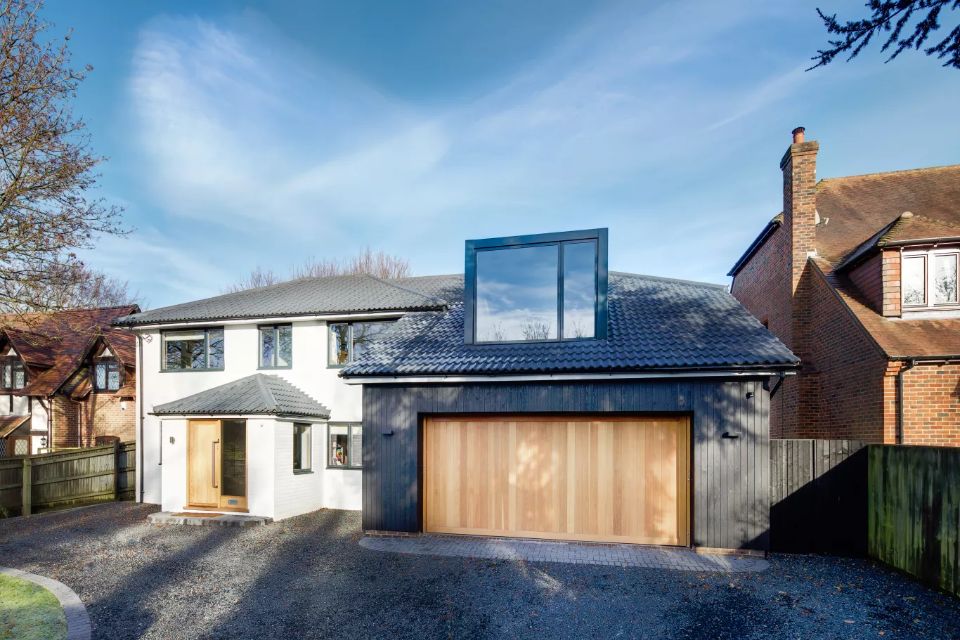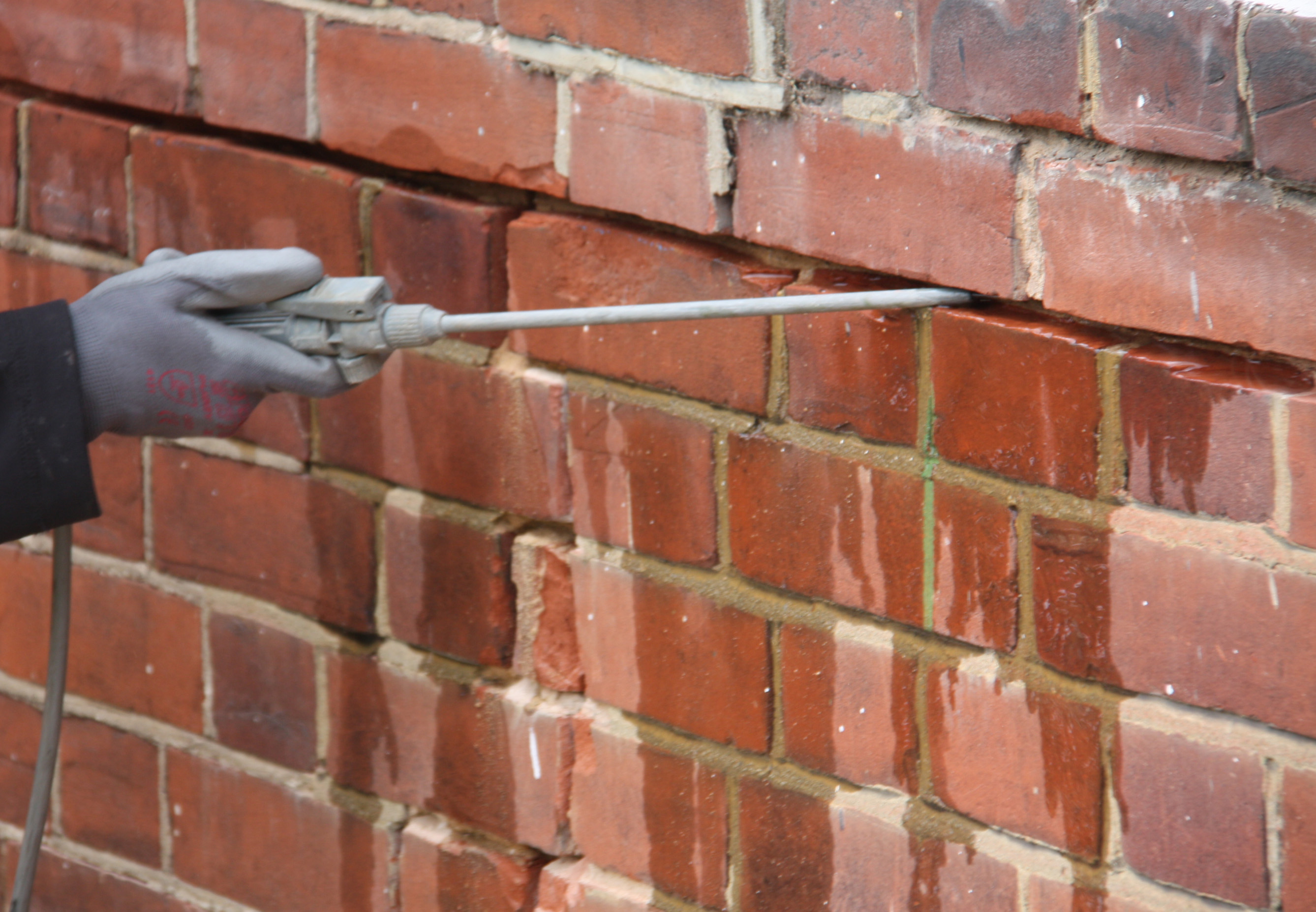How Much is an Orangery?
Are you looking for information about the costs of building an orangery at your home?
This article aims to cover all of the different costs that are involved with building an orangery.
We will also go over the different types of orangery and the benefits of installing one at your home.
An orangery extension is a great way to add some additional living space to your home.
So, what are the average costs for constructing an orangery?
The average cost to build an orangery will depend on several factors including the size of the build, the materials used, and your location in the UK. Prices can range from anywhere between £10,000-£60,000.
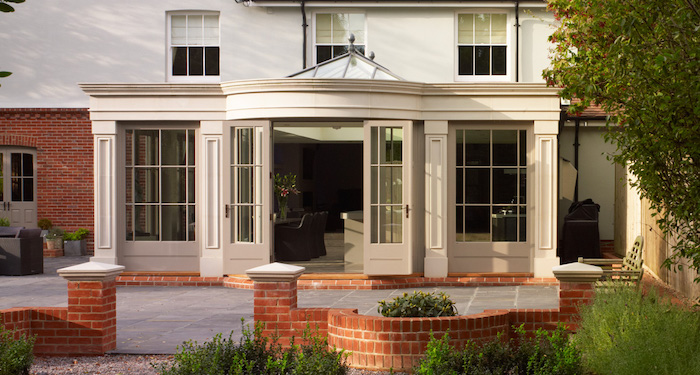
The range is wide because there are so many factors that can affect the cost.
To give you a better idea of what you can expect to pay for an orangery, we have created the table below with all of the average costs that you can expect.
The price of an orangery can vary significantly depending on the quality of the fixtures and fittings.
For reference, a low-end orangery is one with just the bare essentials, a mid-range orangery is one with a mix of basic and bespoke items, and a high-end orangery is one with all top-quality fixtures and fittings.
Orangery Prices 2024
This table shows the average orangery build costs for different sized spaces:
| Orangery Type | Average Cost |
|---|---|
| Small (15m2) low-end orangery | £10,000-£12,000 |
| Medium (25m2) low-end orangery | £12,000-£15,000 |
| Large (40m2) low-end orangery | £15,000-£20,000 |
| Small (15m2) mid-range orangery | £20,000-£24,000 |
| Medium (25m2) mid-range orangery | £25,000-£30,000 |
| Large (40m2) mid-range orangery | £30,000-£40,000 |
| Small (15m2) high-end orangery | £35,000-£38,000 |
| Medium (25m2) high-end orangery | £38,000-£45,000 |
| Large (40m2) high-end orangery | £45,000-£60,000 |
- How Much is an Orangery?
- What are the Supply Costs of an Orangery Build Extension?
- What are the Additional Costs of Building an Orangery?
- Tradesmen Costs for Orangery Construction
- How Long Does It Take to Build an Orangery?
- Types of Orangery
- Benefits of an Orangery
- How Much Does It Cost to Remove an Orangery?
- FAQs
- Sources
What are the Supply Costs of an Orangery Build Extension?
There is a huge range of supplies needed to build an orangery. The cost for supplies will usually be included within the overall cost of the job and will depend on the type and quality of materials used.
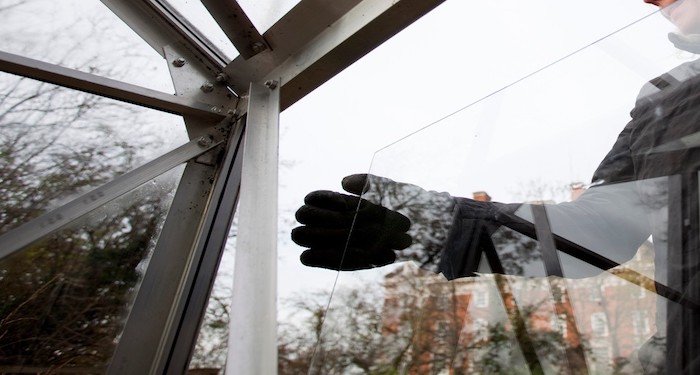
To give you a better idea of the supply costs involved in building an orangery, we have created a table below with all of the average estimated costs that you can expect:
Supply Cost of an Outbuilding
| Type of Supply | Average Cost |
|---|---|
| Foundations | £2,500-£3,500 |
| External Brickwork | £1,500-£2,500 |
| Roof Materials | £1,500-£3,000 |
| Bifold/French Doors | £1,500-£2,500 |
| Windows | £2,000-£4,000 |
| Rendering Materials | £30-£50 per m2 |
| Patio Materials | £800-£1,200 |
| Internal Decorating Materials | £100-£200 |
| Radiators | £50-£300 |
| Underfloor Heating Materials | £500-£1,000 |
What are the Additional Costs of Building an Orangery?
There are several additional costs that may come up when you build an orangery on your house. Below is a list of the additional costs that you may need to consider with this type of work:
New Patio or Garden
Depending on how you want the external portion of your house to look when the orangery is completely built, you may want to think about a new patio or gardening.
An average-sized patio will cost somewhere in the region of £1,000-£5,500 for professional installation.
To hire a gardener, you would be looking at around £20-£30 per hour to hire a professional gardener.
Radiators and Underfloor Heating
Depending on how you want to heat the room, you may want to install radiators or underfloor heating. For radiator installation, you would be looking at a cost of around £150-£500 per radiator.
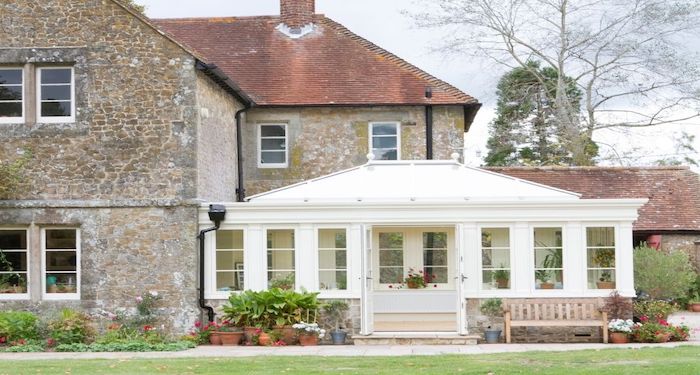
Depending on the size of the orangery, underfloor heating will cost around £700-£2,000.
Tradesmen Costs for Orangery Construction
Installing an orangery is quite a difficult job that requires a range of skillsets and materials.
You would be best hiring a company that specialises in orangery building as these tradesmen will have all of the relevant knowledge and experience to complete the job safely, effectively, and efficiently.
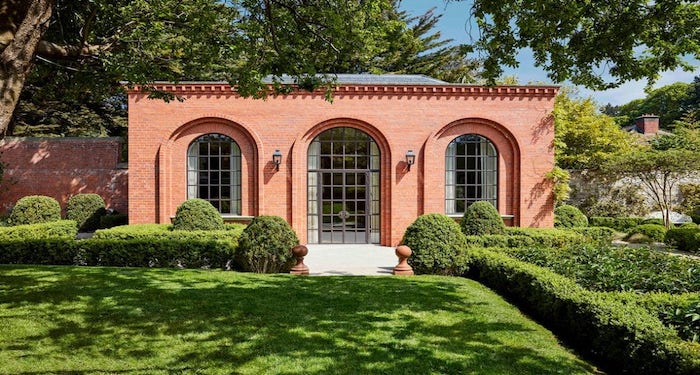
On average, you can expect to pay builders around £150-£250 per day. This is the equivalent of around £1,200-£2,000 per m2.
As you can see, the price for labour can increase greatly depending on the size of the orangery that you’d like.
Those based in London can expect to pay a little bit more for the cost of labour than those based in the North or other parts of the UK.
How Long Does It Take to Build an Orangery?
One of the biggest questions that people seek the answer to is; how long will it take to build an orangery?
The answer to this is quite complex. The time it takes to build an orangery can vary greatly depending on the size of the build, the materials used, the number of contractors on the job, and the ease of access.
On average, a small orangery (15m2) will take around 2-4 weeks to build, a medium-sized orangery (25m2) will take around 3-5 weeks to build, and a large orangery (40m2) will take around 4-6 weeks to build.
These are estimates based on the average amount of time it would usually take for these sizes of orangery to be built.
For a more accurate estimate, it would be beneficial to discuss the job with a contractor beforehand. They will be able to give you a good estimate of the amount of time that they expect your particular orangery to take.
Types of Orangery
Traditional orangeries were made up of timber frames, however, more modern structures can be made using much cheaper materials.
With this in mind, it’s now easier than ever to build an orangery that suits your aesthetic and your budget. Below is a list of the main types of orangery that you can build today:
Low-End – UPVC Orangery
UPVC is the most common material used to construct conservatories but it also makes a great material for budget orangeries.
UPVC is great because it comes in a variety of different colours so you can find one that suits the look of your home.
While uPVC may look a little out of place on a period home, it makes a great addition to a more modern-looking home. UPVC is a great choice of material if you are working with a low budget.
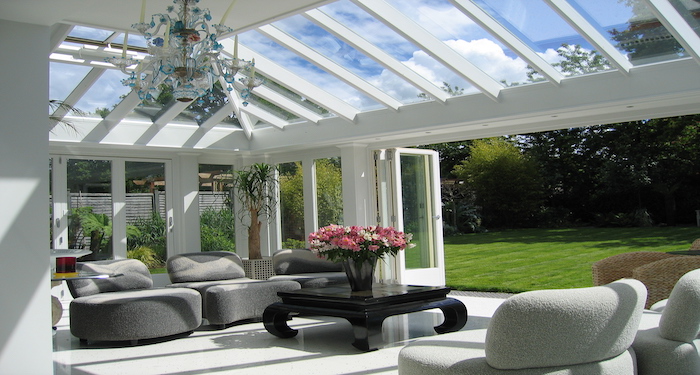
However, it tends to be bulkier than other materials and may draw focus away from the surrounding area.
It is also the least durable option for orangery materials. A uPVC orangery will cost around £10,000-£20,000 to build depending on the size.
Pros:
- Great option as it comes in a variety of styles
- Excellent option for tighter budgets
Cons:
- Tends to be bulkier than other options
- Less durable than other materials
Mid-Range – Aluminium Orangery
Aluminium frames are very strong and durable. They are ideal for building structures of all sizes and offer slim sightlines in comparison to uPVC and timber.
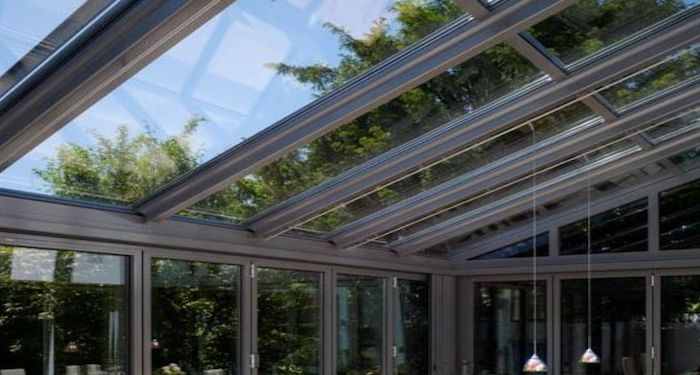
You can choose many colours of aluminium frame to suit your needs and they can also be finished with a timber grain effect, making them an excellent alternative to a real wood frame.
Aluminium frames are higher in cost than uPVC frames. The average cost for an aluminium orangery is around £20,000-£40,000 depending on the size.
Pros:
- Extremly strong and durable
- Highly versatile
Cons:
- More costly than uPVC frames
High-End – Timber (Hardwood Orangery or Softwood Orangery)
Timber frames are the most expensive option for orangery materials. They are beautiful and offer a traditional aesthetic that works on a wide range of homes but they are especially suited to period homes.
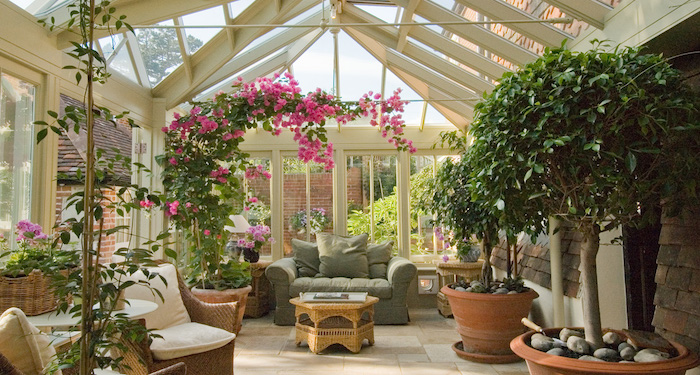
Depending on the size of your build, this option can end up being quite costly. Timber frames will need regular maintenance in the form of treatments to ensure it doesn’t rot, so this is something that needs to be considered before you commit to it.
A timber orangery will cost around £35,000-£60,000 depending on the size.
Pros:
- Offers a beautiful and traditional aesthetic
- Versatile but especially suited to period homes
Cons:
- Timber is the most expensive option
- Requires regular maintenance to ensure it doesn't rot
Benefits of an Orangery
There are a number of benefits to investing in an orangery including the additional natural light that it brings in, the value that it adds to your home, and the various uses. Below is a list of the main benefits of building an orangery on your home:
Increased Natural Light
Orangeries tend to have very slender frames which means that you’re able to add a lot of windows in it. These windows allow a lot of natural light to pour into your home, allowing it to feel much more spacious and inviting.
Increased Home Value
On average, the addition of an orangery will add around 7% or more onto the resale value of your home. Not only that, but the addition of an orangery will also make your home seem much more impressive to any potential buyers.
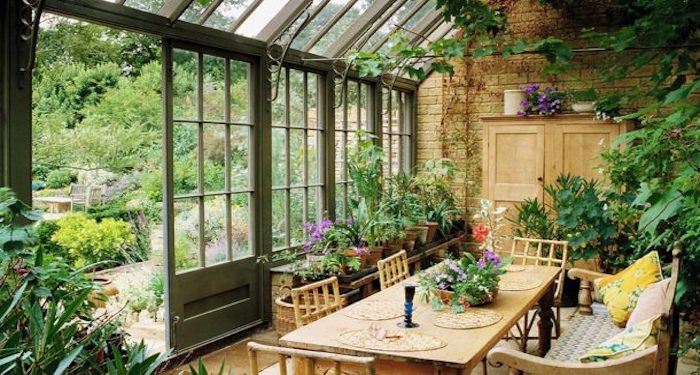
Various Uses
An orangery can be utilised in a number of ways including the following:
- Playroom
- Dining area
- Lounge
- Office
- Home gym
There are so many different ways that you can use this additional space. Once you’ve decided what you want to do with the room, you can furnish and accessorise it accordingly.
Beautiful Garden Entrance
Your orangery will make your garden and home feel much closer, especially if you choose to use large glass doors. The addition of these beautiful doors will provide a gorgeous entrance to your garden space.
Doesn’t Require Planning Permission
Most of the time, an orangery won’t require any planning permission. To be sure your orangery doesn’t need planning permission, it must meet the following criteria:
- Should not exceed 4m in height
- Must not exceed or cover over 50% of the house
- Should not include any balconies, verandas, or elevated platforms
- Should not have eaves higher than 3m if it’s within 2m of a structure boundary
- Should not be more than half the width of the house
How Much Does It Cost to Remove an Orangery?
In some cases, you may want to remove an orangery from your house. For example, if you want to increase the size of your garden space or if you are planning on installing a solid home extension.

On average, you can expect to pay around £500-£2,000 to remove an orangery from your depending on the size. This includes the cost of demolition and waste removal. Removing an orangery will usually take around 1-2 days to complete.
FAQs
Q: What is the difference between an orangery and a conservatory?
A: A conservatory is a glass structure built on a brick base with a pitched, glazed roof. The difference with an orangery is that it is usually a brick frame with large windows incorporated into it.
The main difference between conservatories and orangeries is the amount of glass coverage in the structure.
The roof on a conservatory will be made up of mostly glass, whereas an orangery roof tends to be flat with a small glass portion in the middle.
Q: How much property value does an Orangery add?
A: On average, an orangery will add around 7% onto the resale value of your home.
Q: Can I turn my orangery extension into a kitchen?
A: Yes, it is possible to turn an orangery into a kitchen. Many orangeries work as a kitchen extension and others are built as a stand-alone kitchen.
Orangeries tend to be built with ventilation to help with temperature changes and humidity levels, so this makes them an ideal space for a kitchen.
Q: Is it possible to build a DIY orangery?
A: While it is possible for an avid DIY enthusiast to build an orangery, it is highly recommended that you choose an experienced building company to complete the job to ensure it is safe and well-built.
Q: How long does orangery construction take?
A: Depending on the size of your orangery build, it will most likely take around 2-6 weeks to construct.

